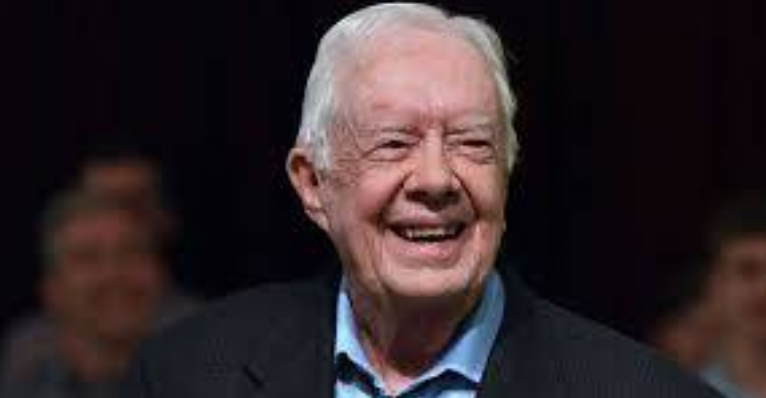Washington (Web Desk): Jimmy Carter, the 39th President of the United States (US) and a man deeply shaped by his humble origins as a peanut farmer in Georgia, passed away at his home in Plains on Sunday, reaching the remarkable age of 100.
Although his presidency was clouded by challenges like the Iran hostage crisis and a struggling economy, Carter's legacy is defined by his achievement in brokering peace between Israel and Egypt through the historic 1978 Camp David Accords.
His efforts toward peace earned him the Nobel Peace Prize in 2002, further cementing his status as a humanitarian.
Carter’s presidency was marked by struggles with soaring inflation, high interest rates, and the energy crisis, and his approval ratings plummeted during the Iran hostage crisis.
Despite these challenges, he was instrumental in landmark foreign policy successes, particularly in the Middle East, where his diplomatic efforts led to the first peace treaty between Israel and Egypt.
This achievement earned both Egyptian President Anwar Sadat and Israeli Prime Minister Menachem Begin the Nobel Peace Prize.
Domestically, Carter also oversaw the establishment of the Departments of Energy and Education, and he played a pivotal role in securing the Panama Canal Treaty, which returned control of the canal to Panama.
Though his time in the White House ended with a bitter defeat by Ronald Reagan in 1980, Carter found a greater calling after leaving office.
His post-presidency years were characterized by significant contributions to global peace and human rights.
Through the Carter Center, he became a respected voice for conflict resolution and democracy, overseeing election monitoring in countries worldwide and mediating disputes in places like Haiti, Bosnia, and Ethiopia. His focus on alleviating poverty, addressing hunger, and advocating for human rights earned him global admiration.
Born in 1924 in Plains, Georgia, Carter's path to the presidency began with a background in the military and agriculture. After graduating from the US Naval Academy, he served in the Navy and later returned to Georgia to manage his family's peanut business.
His political career took off in the early 1970s, and his unexpected victory in the 1976 presidential election was fueled by a desire for transparency and honesty, following the scandal of Watergate.
Although he struggled to project strength as a leader during his presidency, Carter’s deep sense of morality and his devotion to service became more apparent in his later years.
Carter’s willingness to speak out on global issues sometimes led to friction with sitting presidents.
His critique of the Iraq War in 2003 and his calls for diplomacy with North Korea set him apart from political norms, as did his unflinching stance on human rights.
Carter's advocacy continued through writing—he authored over 20 books on topics ranging from faith and politics to his personal reflections on a life spent in service.
Ultimately, his legacy is not defined by the political battles he fought or the setbacks he faced, but by the lives he touched through his unwavering commitment to peace and justice.
Jimmy Carter's work continues to inspire those who seek a better world, underscoring the enduring power of compassion, diplomacy, and dedication to the common good.


